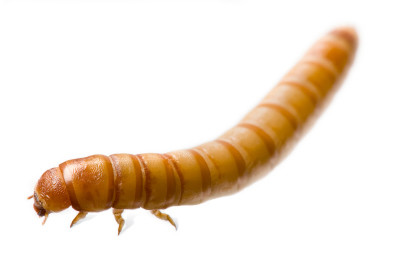Mealworms may turn infected wheat into cash

Canadian research has uncovered a potential solution for producers stuck with unsellable fusarium-infected wheat and open up a new worm-based niche market for the feed industry.
Mealworms unaffected by mycotoxins
Studies at the University of Saskatchewan have found that yellow mealworms can eat wheat infected with the fungus, whose mycotoxins are harmful.
Even though mycotoxin levels can be high, which cause vomiting and abdominal pain in humans and affect livestock growth, the worms remain unaffected.
Nutritious source of protein for poultry
The fattened mealworms, which are offspring of a flightless beetle, could be a new, nutritious source of protein for poultry.
Infected wheat is difficult to dispose of
Fiona Buchanan, animal and poultry science professor, said: “We want to help producers by making use of grain that is worth nothing and that no one knows how to dispose of safely.”
Farmers usually bury or burn the contaminated wheat. However, burying does not eliminate the fungus and it may spread to the next year’s crops. Burning causes environmental pollution.
Keep up to date on mycotoxins: This interactive tool provides information on the impact on livestock health, A-Z of mycotoxins, plus the regulations for mycotoxins per commodity per country.
Mycotoxin contamination causes billions in economic losses
Fusarium fungus contamination caused more than $1bn in economic losses in Canada in 2016, affecting almost 80% of Saskatchewan and Manitoba cereal crops.
Yellow mealworms: Safe, sustainable and cheaper feed
Using 10,000 mealworms, Buchanan and her master’s student Carlos Ochoa proved that, regardless of contamination in the wheat, the mealworms always showed only 0.13 parts per million of mycotoxin in their bodies – far below recommended safety levels for animal consumption.
Her master’s student Carlos Ochoa added: “Yellow mealworms are a safe, more sustainable and cheaper feed, and can eliminate a contaminated product from the environment at the same time.”
If additional funding becomes available, the pair would like to test even higher toxicities to determine the threshold of the mealworms for consuming infected wheat and start trials on chickens by feeding them crawlers grown on contaminated wheat.












